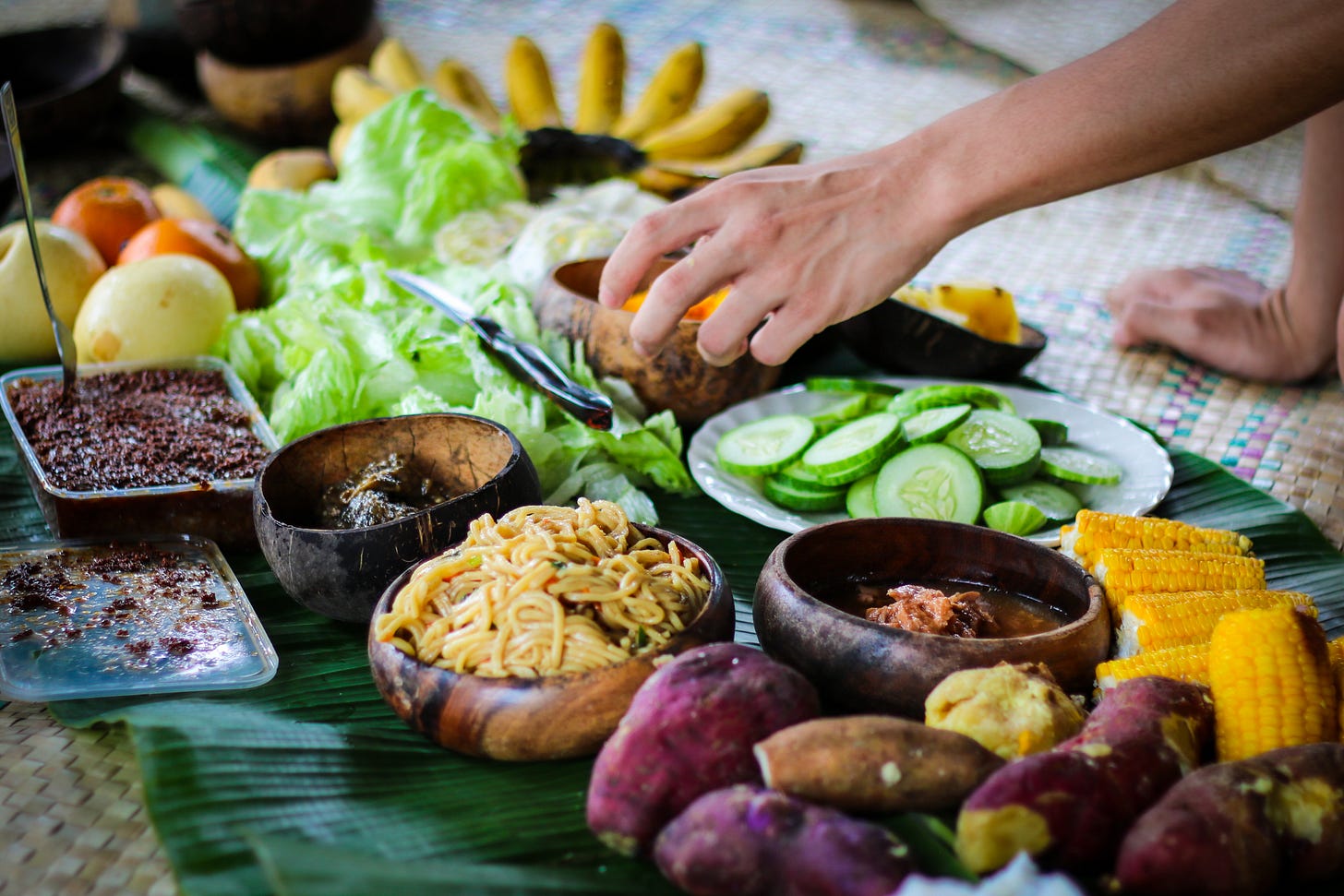What if the best way to solve climate change… was to stop talking only about the climate? 🌍
How climate action can be the best investment we make in our health, communities, and future.
We’ve spent decades making the case for climate action with melting glaciers, rising seas, and endangered species. But while those threats are real, they often feel distant — either in space, time, or relevance. What’s missing is a story that hits closer to home. One that speaks to the here and now. One that connects to our daily lives, our health, our food, our families.
That’s where the idea of co-benefits comes in — and why I’m making it the central focus of this newsletter for the next few months.
The concept is simple, but powerful: when we take smart action on climate change or the environment, we often gain unexpected wins elsewhere — in public health, food security, social equity, mental wellbeing, and more.
Replace diesel buses with electric ones? 🚍 You don’t just cut carbon — you reduce childhood asthma.
Design a city that makes walking and cycling easy? 🚶♀️ You lower emissions — and slash rates of heart disease, diabetes, and even depression.
Shift to more plant-based diets? 🥦 You protect ecosystems — and prevent millions of premature deaths.
Invest in restoring oceans and coral reefs? 🌊 You fight climate impacts — and safeguard local food and livelihoods.
These aren’t nice side effects — they’re central. And they often happen faster, more visibly, and more locally than climate benefits alone.
That’s why co-benefits matter so much: they’re a lever for action. They help shift climate policy from a cost to an investment. They turn delay into urgency. And crucially, they make it personal.
In the coming issues of Antidote, I’ll dive deeper into how this works in real life — and what we’re learning through our work at the WHO Asia-Pacific Centre for Environment and Health. We’ll explore co-benefits across transport, food, energy, cities, oceans, housing, and more. We’ll look at what governments and communities are already doing. And we’ll ask what it takes to scale good ideas.
There’s a reason I called this newsletter Antidote. Because too often, the health and climate conversations are stuck in loops of fear, doom, and helplessness. Co-benefits offer a way out — not by ignoring the risks, but by showing the opportunities. For healthier people. Stronger communities. Fairer systems. And a safer, more resilient planet.
This is the story we need to tell now — and I hope you’ll come on the journey.
💡 Co-benefit of the Fortnight
Walking cities, healthier hearts
Making cities walkable isn’t just good for the planet — it’s one of the most powerful tools we have for preventing chronic disease. A recent study found that people who walk or cycle for at least 30 minutes a day reduce their risk of heart disease by up to 11%. And more active transport means fewer cars on the road — lowering air pollution and greenhouse gases at the same time.
Cities like Seoul and Melbourne are already investing in active transport infrastructure. The co-benefit? Cleaner air, healthier hearts, and calmer streets. ❤️
✈️ Field Notes
This past month I was in Bonn, Germany, visiting the World Health Organization’s Bonn-based European Centre for Environment and Health. They’re doing excellent work supporting countries across the European Region tackle air pollution — from measurement to solutions — with practical, scalable advice.
With 53 countries in their region and 37 in ours, we discussed the importance of building region-to-region collaboration, and how we can strengthen our collective work across all 90 countries as WHO accelerates its efforts on climate and environmental health. A great team doing critical work. 🤝
🎧 What I’m Reading / Watching / Listening To
BBC Nature Podcast – Latest episode: A fascinating look at how wildlife is adapting to climate change in real-time. Brilliant science storytelling, with some unexpected moments of hope. 🐾
AIIB Report: Planetary Health Infrastructure – A new report from the Asian Infrastructure Investment Bank that dives into what climate-resilient health infrastructure really looks like. Worth reading for anyone working at the intersection of public health and climate investment. 🏥
✅ Antidotes – Your Actions
Try adding one more plant-based meal to your week. It’s better for your health and the planet — and often cheaper, too. Start with something simple like lentil curry, veggie stir-fry, or a grain bowl. 🥗
Swap one car trip this week for a walk or bike ride — for your health, your lungs, and your local community. 🚴







hi Sandro, I like your thinking.
But, to get engagement and cut through, keep the language simple - dumb it right down.
That's what Trump is doing, and the masses in USA and Australia lap it up.